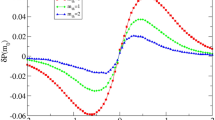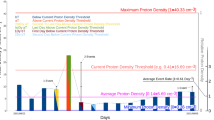Abstract
THERE are always a large number of persons engaged in searching for correlations between pairs of variables, most of which are, in fact, uncorrelated. From the way in which statistical tests of significance are constructed, we know that in the cases in which no correlation exists the search will be spuriously rewarded, on the average once in every hundred tests, by a result significant at the 1 per cent level. When interpreting a published result significant at this level, it is necessary to make allowance for the possible existence of ninety-nine other results which were not published because they were not significant.
This is a preview of subscription content, access via your institution
Access options
Subscribe to this journal
Receive 51 print issues and online access
$199.00 per year
only $3.90 per issue
Buy this article
- Purchase on Springer Link
- Instant access to full article PDF
Prices may be subject to local taxes which are calculated during checkout
Similar content being viewed by others
References
Tomaschek, R., Nature, 184, 177 (1959).
Fisher, R. A., “Statistical Methods and Scientific Inference” (Oliver and Boyd, Edinburgh, 1956).
Author information
Authors and Affiliations
Rights and permissions
About this article
Cite this article
BURR, E. Earthquakes and Uranus: Misuse of a Statistical Test of Significance. Nature 186, 336–337 (1960). https://doi.org/10.1038/186336b0
Issue Date:
DOI: https://doi.org/10.1038/186336b0
Comments
By submitting a comment you agree to abide by our Terms and Community Guidelines. If you find something abusive or that does not comply with our terms or guidelines please flag it as inappropriate.



